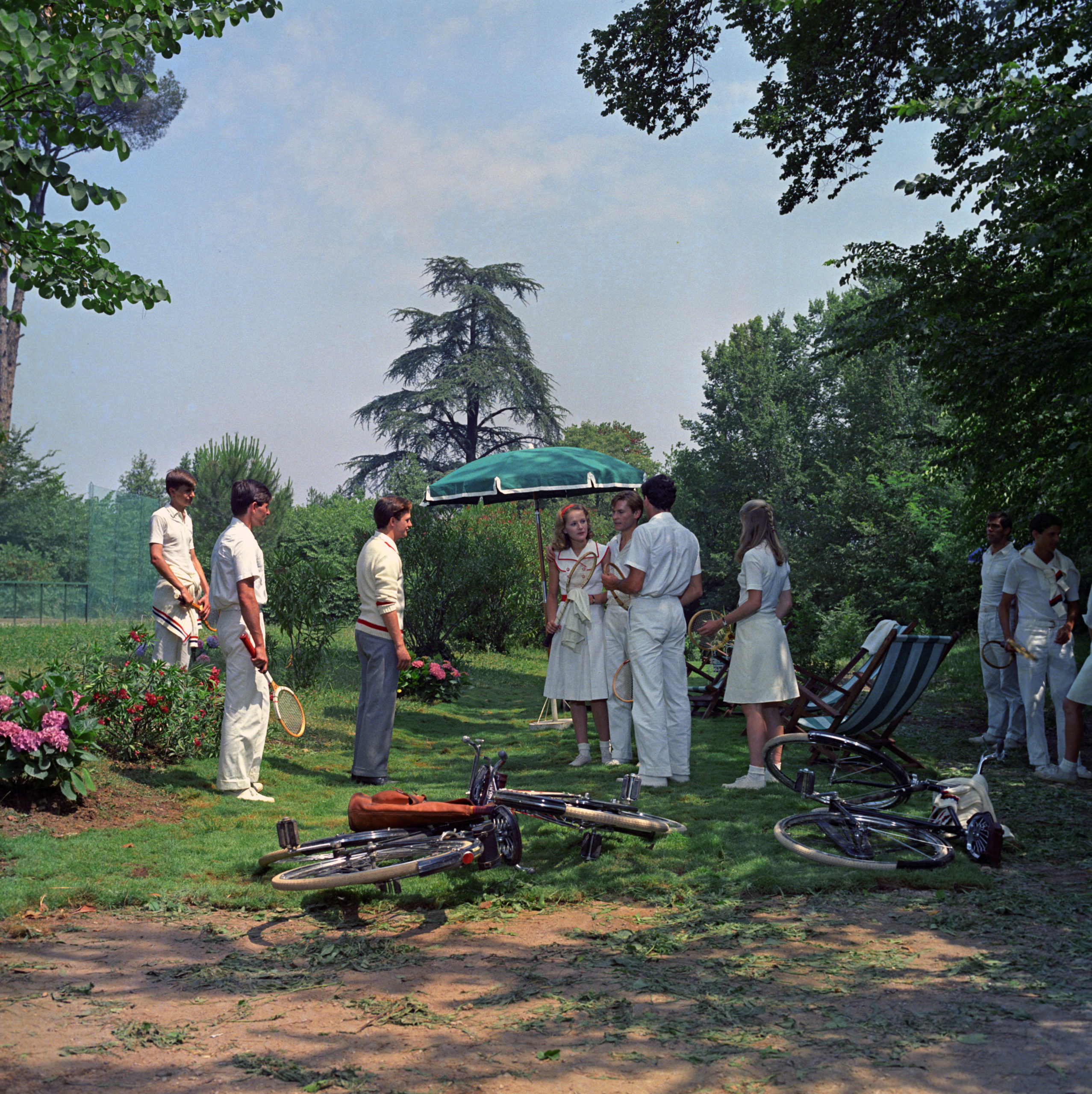
Return to the Garden of the Finzi-Continis
Approaching an old love after almost 50 years is fraught. What if that love – De Sica’s Oscar-winning film —has faded, become unbearably dated? What if my bold decision to head for Israel right after the Munich massacre of the Israeli Olympic team now seems naïve? It never occurred to me to study Yiddish, my ancestral language, even though my family hasn’t been in Israel for at least a thousand years.
In fact, viewing the film on my computer, most seems unfamiliar. But the beautiful scenes are still beautiful – all those young blonde Christians at play in their elegant tennis whites on the Finzi-Contini tennis court, riding in on their bicycles when the young Finzi-Continis have been barred from the Ferrara tennis club. And the young Finzi-Continis are equally blonde and beautiful – the elegant Micòl and the frail Alberto. Not a Jewish stereotype in sight. The garden, a huge estate in the center of town, is ravishing, flowers seemingly forever in bloom – a Garden of Eden.When the beautiful young Alberto dies of an unspecified disease, his burial in a Jewish cemetery is almost a shock. Since I was visiting my parents for Passover, I was probably struck by the contrast of the joyful singing at another family’s seder followed by the apparently sederless Finzi-Continis formally wishing a visitor a happy Passover.
What I remember are the final scenes – three generations of Finzi-Continis taken away by Fascists in business suits.Their servants, presumably illegally employed Christians, look on silently. Unlike the other Jews rounded up for deportation, they’re not even prepared with little suitcases. The beautiful Micòl remains aristocratic to the end – correcting the fascist mispronouncing her name. And the film’s final wrenching music – when I first saw it, I’m sure I couldn’t have identified it as El male rachamim, the Jewish prayer for the dead.
When the film moved me back then, I quit my U.S. job and spent a year in Israel. I learned about Judaism by auditing courses at the Hebrew University. I dropped my belief that Israelis are paranoid after the Yom Kippur War broke out and it looked as if no one would come to Israel’s aid. (Eventually the U.S. did.) I got over my stereotype that all Israelis are pushy when I ended up living with an Israeli who is one of the most empathetic people I know. A medical student at Hadassah, she was working around the clock during the Yom Kippur War.
In retrospect, I realize my decision to move to Israel and check out my Jewish roots was probably part of rethinking who I was thanks to the rush of self-examination of the women’s movement (the personal is political). And once in Israel, I went from innocence to outrage at the power of the religious establishment over women’s lives in marriage and divorce. So no surprise that back in New York I jumped into starting Lilith, the Jewish feminist magazine still going strong after more than 40 years.
Now, secure in my Upper Westside Manhattan bubble, I wonder what my blind spots are compared with the Finzi-Continis. Two differences: I’ve joined Jewish and Muslim women in the Sisterhood of Salaam Shalom to stand up to hatred. And I just got trained at our shul to have a plan of action if attacked by a mass killer. Hopefully I’ll be able to discipline myself to take such a possibility seriously.
But above all, this is about the power of film – to move us suddenly, unexpectedly to places we never thought we’d go.
Check out these three simultaneous film festivals below.
1) The 29th Annual New York Jewish Film Festival is a partnership of the Jewish Museum and Film at Lincoln Center, now through Jan. 28. Nyjff.org
2) NY Social Justice Film Festival – Marlene Meyerson JCC Manhattan, Jan. 16-20 (Martin Luther King Jr. Day), www.cinematters.film
3) Black Women – Trailblazing African American Actresses & Images 1920-2001 — Film Forum NYC, Jan. 17-Feb. 13. https://filmforum.org/series/black-women-trailblazing-african-american-performers-images-1920-2001. Programmed by film historian Donald Bogle with Ina Archer.
See you at the movies.



